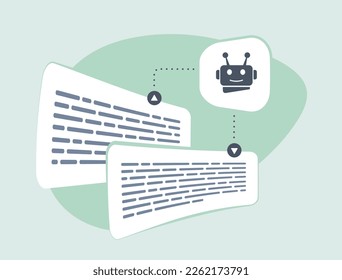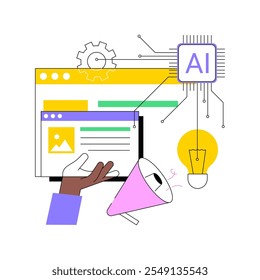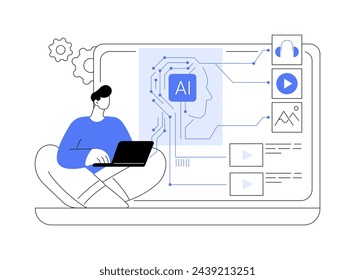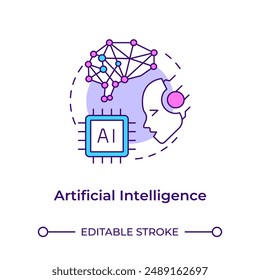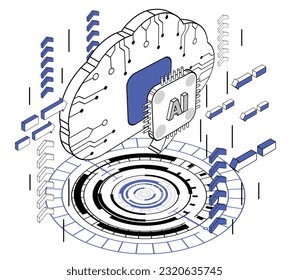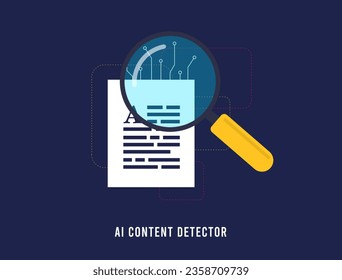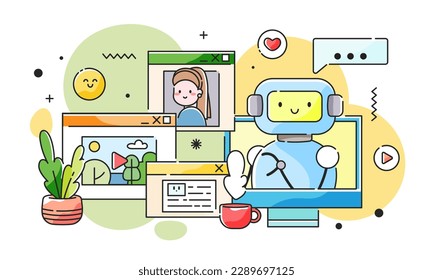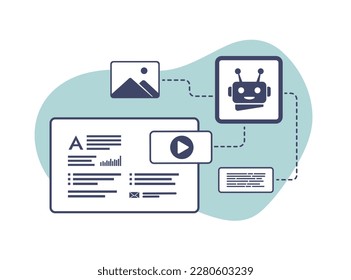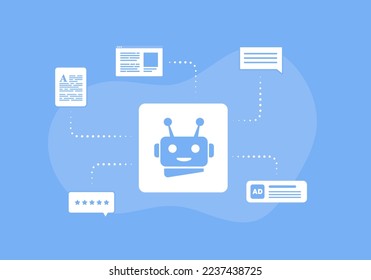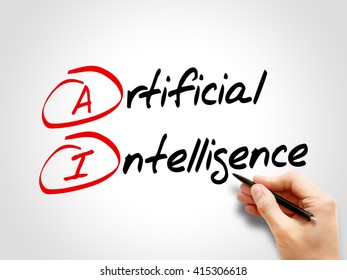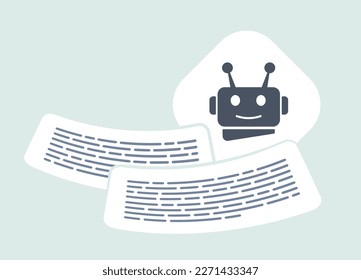Artificial Intelligence (AI) is disrupting businesses worldwide through automation, data insights and enhanced customer engagement. According to a PwC report, AI could contribute over $15 trillion to the global economy by 2030. However, AI adoption also brings risks. This article provides an overview of AI’s business benefits, limitations, real-world implementations and future outlook.
The Advantages of AI for Business
AI is delivering transformative benefits for enterprises across industries. As the capabilities of AI solutions continue to grow, more companies are exploring ways to leverage AI to enhance their operations, products and services. The following are some of the key advantages AI offers businesses.
Increased Efficiency and Productivity
AI automates time-consuming tasks and processes to free up employees to focus on higher-value work. For example, chatbots handle routine customer queries, while predictive maintenance reduces equipment downtime. Process automation with building AI software achieves cost savings and productivity gains.
More Informed Decision Making
Image Courtesy: Unsplash
Algorithms can rapidly digest and analyze massive datasets to detect patterns and relationships that humans cannot. These data-driven insights enhance forecasting, risk management and strategic planning.
Hyper-Personalization
With capabilities like machine learning and natural language processing, AI can deliver personalized product recommendations, customized content and tailored customer experiences. This strengthens engagement and loyalty.
New Revenue Opportunities
AI expands business capabilities to help uncover new monetization models. This includes selling data-driven insights, predictive analytics or conversational interfaces. AI fosters innovation.
Enhanced Customer Service
AI chatbots provide 24/7 automated support. With capabilities like speech recognition and sentiment analysis, AI can understand diverse customer inputs and enhance interactions.
The Limitations of AI
While promising, AI adoption has challenges:
Integration Difficulties
Incorporating AI into complex legacy IT systems with data distributed across multiple silos can be complicated. Lack of integration stymies ROI.
Data Biases
AI algorithms derive intelligence from training data. Any biases in that data around race, gender or other attributes get reflected in the models, leading to discriminatory outcomes.
Job Displacement
AI automation of certain tasks could result in workforce disruption. Businesses need responsible frameworks to assess potential job impacts.
Lack of Transparency
The black-box nature of AI models like neural networks makes it hard to explain their inner workings and decisions. This lack of transparency impedes trust.
Real-World AI Implementations
The applications highlighted so far demonstrate the widespread adoption of AI across core business functions to drive efficiencies, growth and innovation. As AI capabilities continue advancing, companies are finding new use cases and exploring possibilities. Here are some examples of AI delivering value across various business functions:
Marketing
- Netflix leverages AI to provide personalized recommendations that keep users engaged on its streaming platform.
- Starbucks uses AI to optimize store locations and drive-thru placement based on
customer demographics and traffic patterns.
Finance
- American Express monitors transactions with machine learning models to detect fraudulent activity in real time.
- Wealthfront offers AI-based investment management and financial planning services to clients.
Human Resources
- Unilever streamlines recruitment by using AI to screen applicant resumes and rank qualified candidates.
- ADP’s AI analyzes employee tenure patterns to predict attrition risk.
Logistics
- Amazon relies extensively on AI to optimize warehouse operations, delivery routes, and inventory management.
- UPS uses predictive analytics to reduce delivery delays and cut fuel costs.
Customer Service
- Sephora’s AI-powered chatbot provides personalized beauty advice to online shoppers.
- T-Mobile’s virtual assistant handles common customer service queries, eliminating call wait times.
The Future Outlook for Enterprise AI
The business applications of AI are still evolving. According to an MIT Sloan study, companies currently use AI mainly for process automation and efficiency. But in the future, AI deployment will shift towards revenue growth through enhanced decision-making, personalization and product innovation.
IDC forecasts that by 2025, 75% of enterprise applications will embed AI in some capacity to augment human capabilities. Cloud-based AI solutions will widen adoption across industries. Successfully harnessing AI’s potential requires dedicated data science teams and collaborative learning cultures.
Organizations should implement AI governance frameworks covering aspects like ethics, privacy and security. While AI maturity is still low, rapid advances in the coming years will make AI indispensable across enterprises. The strategic integration of AI with human ingenuity is the future.
In summary, AI delivers tangible business benefits but also brings risks. By adopting AI responsibly and iteratively, companies can accelerate growth. But they must invest in capabilities and governance to ensure it aligns with corporate values. Though nascent today, AI will become the next major competitive advantage for organizations.







